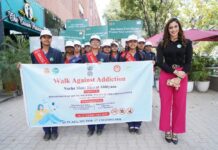AIR POLLUTION AND COVID ARE SYNERGESTIC
In last 10 days the national capital of Delhi and its neighbouring areas have seen a sudden sharp spike in air pollution levels. The AQI inn Delhi on 7.11.2020 remained above 350 while safe limit is 0-50. The WHO’s ambient air pollution data shows that the levels of PM 10 and PM 2.5 in Delhi are way above the normal levels. The annual PM 10 Level was found to be 229 microgram/M3 and PM 2.5 was found to be 112 microgram/M3. In Year 2016, A study conducted at department of Community Medicine, MAMC New Delhi where 3019 individuals were screened through spirometry nearly 34.35% were found to have lung impairment.
Environmental air pollution is one of the most important social determinants of health. The air pollution damages the inner lining of lungs and hence increases the severity of covid19 infection. Increased Air pollution leads to increased inflammatory response in the last few days Delhi has reported more than 6000 COVID cases per day. 13% of the increase has been estimated to be due to pollution. Patients who are sensitive to respiratory diseases may find it difficult to breathe if the AQI is between 50 to 100. An AQI of above 300 makes it difficult not only for people with respiratory problems, but healthy people as well. Hence, it is advisable that people do not go out early in the morning when pollution levels are the highest. Elderly and children are more likely to develop infections and allergies due to smog. Poor air quality may result in the aggravation of asthma, COPD, high BP and even cardiovascular diseases Merely walking could result in health complications due to the high concentration of particulate matter (PM) 2.5 in Delhi’s air. N 95 masks and air purifiers may not provide full time protection.
The major sources of air pollution in Delhi are vehicular pollution, construction activities, carriage of construction material, dust on roads, burning of agricultural or crop residue, industrial and powerhouse emissions, burning of municipal wastes, thermal energy power plants and mining in Aravalli hill areas.
The following measures can be adopted by the people to help reduce pollution.
1. Use of Public Transport
2. Buying Energy Efficient Vehicles
3. Planting a Garden wherever possible.
4. Making use of Solar Energy
5. Using recyclable Products
There is also a graded response action plan in Delhi and NCR which includes measures such as prohibition on entry of trucks into Delhi, ban on construction activities, introduction of odd and even scheme, closure of brick kilns, ban on diesel generator sets, garbage burning in land fill etc. Banning of crackers and stubble burning in hinterland are helpful public health measures. Implementation of long-term measures is important.
Press Statement - Air Pollution and Covid are Synergestic













